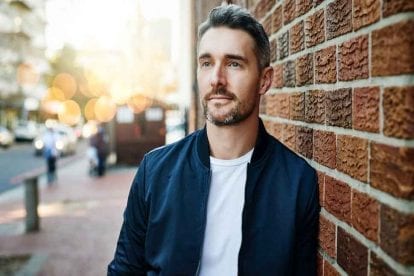Rising Higher: Prescription Drug Addiction Amongst Executives

Prescription drug addiction amongst executives and other high-powered professionals is under-recognized but on the rise. This new kind of addict is the result of unique causes of addiction that are qualitatively different than those of many other kinds of addicts, and acknowledging the special circumstances of these professionals is imperative to seeking understanding and treatment.
Within hours of Prince’s untimely death last year, the speculation began. Was it a heart attack? Was it drugs? Heroin? We are, after all, used to losing our idols prematurely for drug-related reasons. But Prince didn’t lose his life to the illicit narcotics that had stolen the lives of so many musicians before him. He didn’t have a reputation for wild nights or trashing hotel rooms in drug-fuelled rages. Instead, he was a devout man, a quiet sort of man who eschewed alcohol and even cursing.
So when the toxicology report came in, more than few were surprised. He did die of a drug overdose, although not the recreational kind. Instead of heroin or party drugs, he was taken away by fentanyl, a opioid painkiller and cousin to the Percocet he had been prescribed decades earlier to combat the pain brought on by years of physically taxing performances.
The discovery of Prince’s fentanyl overdose and long-term opioid use stood in stark contrast to the public image of what prescription drug addiction looks like. In recent years, public health officials, politicians, and the media have cast a much-needed spotlight on prescription drug abuse, particularly opioid abuse, ravaging America. However, that spotlight has typically focused on the heartland, the disenfranchised, the way these drugs have infiltrated working and middle-class communities, and even the elderly. In the increasing urgent conversation about prescription drug addiction, there is a group whose rising rate of addiction has gone largely unnoticed, one that may be even more surprising than the uncovering of a rock star’s addiction: executives and other high-powered professionals.
A New Kind of Addict
“I began using benzodiazepines for legitimate anxiety,” Charlotte, a director at a major media organization, tells me. “I had so much on my plate at work, I was taking on new and extraordinary amounts of responsibility, I just needed something to take the edge off. Benzodiazepines were easy.”
“People don’t think about medicine as physical labor,” Matthias, an oral surgeon, says. “But it really takes a toll. I knew the risks of opioids, but my desire to be pain-free quickly overrode my own fears. I had to do what I had to do, right? My career was at stake. If I couldn’t work in my chosen profession, I had no backup plan.”
“I thought I owed my career to stimulants,” says Peter, who was recently named partner at his law firm. “I never had a legitimate medical concern, but I was struggling academically right as ADHD was coming into public consciousness. Getting a prescription was no problem at all and neither was finding new doctors to prescribe more and more as my tolerance rose.”
While drug abuse amongst this population is nothing new—there are countless tales of waitresses walking around with trays of cocaine at media parties in the 80s—this kind of drug abuse is different. Prescription drug addiction amongst executives and other high-powered professionals is qualitatively different than those heady days of widespread and relatively open recreational drug use. This kind of drug abuse is secret, hidden, and outwardly legitimate. It is isolating in a way that passing around party drugs with friends isn’t, due to the ostensibly therapeutic nature of the drugs themselves, the high stakes of discovery, and the oft-reported belief that these drugs are not antithetical to users’ success but the reason behind it, due to their ability to improve function (if only temporarily). But the secrecy and isolation surrounding prescription drug abuse amongst professionals are particularly nefarious, as they often work to keep people from getting the help the need. More than most, you and those around you may be reluctant to identify yourself as an addict, as you do not see yourself reflected in popular images of addiction.
We're Here to Help. Call Today!
866-922-1350The Causes of Addiction
If the midst of addiction often looks different for executives using prescription drugs than it does for recreational drug users, so too does its genesis. But what are the factors that contribute to this type of addiction?
Medical Access
Getting prescriptions requires access to medical professionals, and executives have it. Most high-powered professional jobs come with increasingly elusive Cadillac insurance plans that allow you to seek medical care any time you want with the knowledge that your prescriptions will be covered. At the same time, you do not come off a drug-seeker; you are, after all, a successful professional with medical concern that is perceived as legitimate, both when it is and when it isn’t; you are given emotional and practical access via your status. This access increases the likelihood that you will both seek medical and walk away with a prescription, whether it is a painkiller, a sleeping pill, a stimulant, or a benzodiazepine.
Work/Life Balance
The time and energy required to get to and stay at the top of your field can be enormous, leaving you little time for healthy stress relief, such as meditating, exercise, socialization, or even just relaxing with a good book. In the absence of true work/life balance, the ability to pop a pill for your ailments can be particularly attractive. You may also ignore early signs that you are developing dependency or addiction both because you have a litany of excuses for your emotional and behavioral changes (“I’ve been working too much, I haven’t been eating well”, etc.) and because tending to these concerns requires time you simply don’t have.
These unique conditions can lay the foundation for an ongoing, damaging relationship with prescription drugs that turns successful, hard-working, and high-function people into addicts, sometimes very quickly. And soon, your ability to function both personally and professionally can begin to crumble, threatening to damage your hard-won success.
Seeking Understanding, Seeking Treatment
In addition to these gateways to prescription drug addiction, executives often face particular barriers to seeking support and treatment, including simply not believing that there is a place for you in treatment programs. The origin of your addiction, the conditions that maintain it, and your concerns regarding treatment are different. However, there are treatment programs designed with your unique needs in mind.
Executive recovery programs, both residential and outpatient, are staffed by clinicians who understand the special circumstances that you face as a successful professional both in your addiction and in your recovery. They work with you to create extraordinary treatment experiences tailored to your needs, both emotional and practical, throughout your recovery while partnering with your healthcare providers to resolve the issues that led you to turn to prescription drugs in the first place, whether physical or psychological.Additionally, executive recovery programs offer you meaningful peer support in the company of other professionals who know what you are going through and can offer camaraderie, insight, and a sense of belonging as you work through
Additionally, executive recovery programs offer you meaningful peer support in the company of other professionals who know what you are going through and can offer camaraderie, insight, and a sense of belonging as you work through a comprehensive curriculum of care. This peer support can be an indispensable part of your recovery journey and help you break through the isolation that so often accompanies prescription drug addiction amongst executives.
Addiction does not care about your profession. Addiction does not halt its progression when it sees your success. But your profession and your success must be taken into account in treatment if treatment is to address the full scope of your experience to find real healing. Freedom from addiction, after all, is the beginning of a new, richer life in which your true potential is unlocked and in which extraordinary things are possible.
Alta Mira offers a comprehensive suite of recovery programs for those struggling with drug and alcohol addiction as well as co-occurring mental health disorders and process addictions. Contact usfor more information about our innovative curriculums and how we can help you or your loved one start the journey toward lasting recovery.






